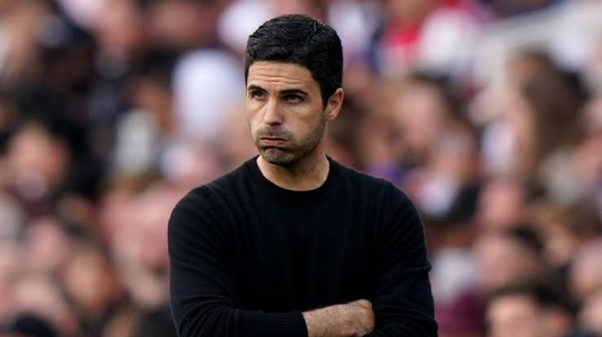Arsenal boss Mikel Arteta found himself in the spotlight recently after being booked during the Community Shield match.
The incident has prompted Arteta to reflect on his behaviour and has led to discussions about the challenges of altering one’s conduct within a short timeframe.
The Spaniard on Sunday was shown a yellow card after sprinting over to fourth official John Brooks and gesturing that Manchester City star Rodri should be booked for a challenge on Kai Havertz during the Community Shield match.
The specific details of the incident leading to the booking have not been disclosed in the available information, but it has evidently sparked conversations surrounding his on-field behaviour.
In the aftermath of the incident, Arteta addressed the booking and acknowledged that changing his behaviour in just three days might prove challenging.
His response highlights the importance of self-awareness and the recognition that transforming deep-rooted habits or behaviours is a complex process that requires time and effort.
“I cannot change my behaviour in three days. It’s a very difficult thing to do, and next time we cannot ask him to say, okay, tomorrow we play with no offsides’ and the linesman says ‘what is he doing?” Arteta said.
For any individual, modifying long-standing behaviour patterns is a formidable task. Arteta’s admission reflects the reality faced by many in their journey towards personal growth and development.
The pressures and demands of being a high-profile football manager, combined with the intensity of competitive matches, can make self-regulation on the pitch a challenging endeavor.
Arteta’s response serves as a reminder that genuine change is a continuous process that often extends beyond a single isolated incident.
Whether on the football pitch or in everyday life, modifying one’s behaviour requires patience, self-reflection, and a willingness to learn from past experiences.
The incident involving Arteta sparks a broader conversation about sportsmanship, respect, and the role of football managers in setting a positive example for their teams and fans.
It serves as an opportunity for the football community to engage in discussions about the importance of maintaining composure in high-pressure situations and the impact of behaviour on the overall perception of the sport.










